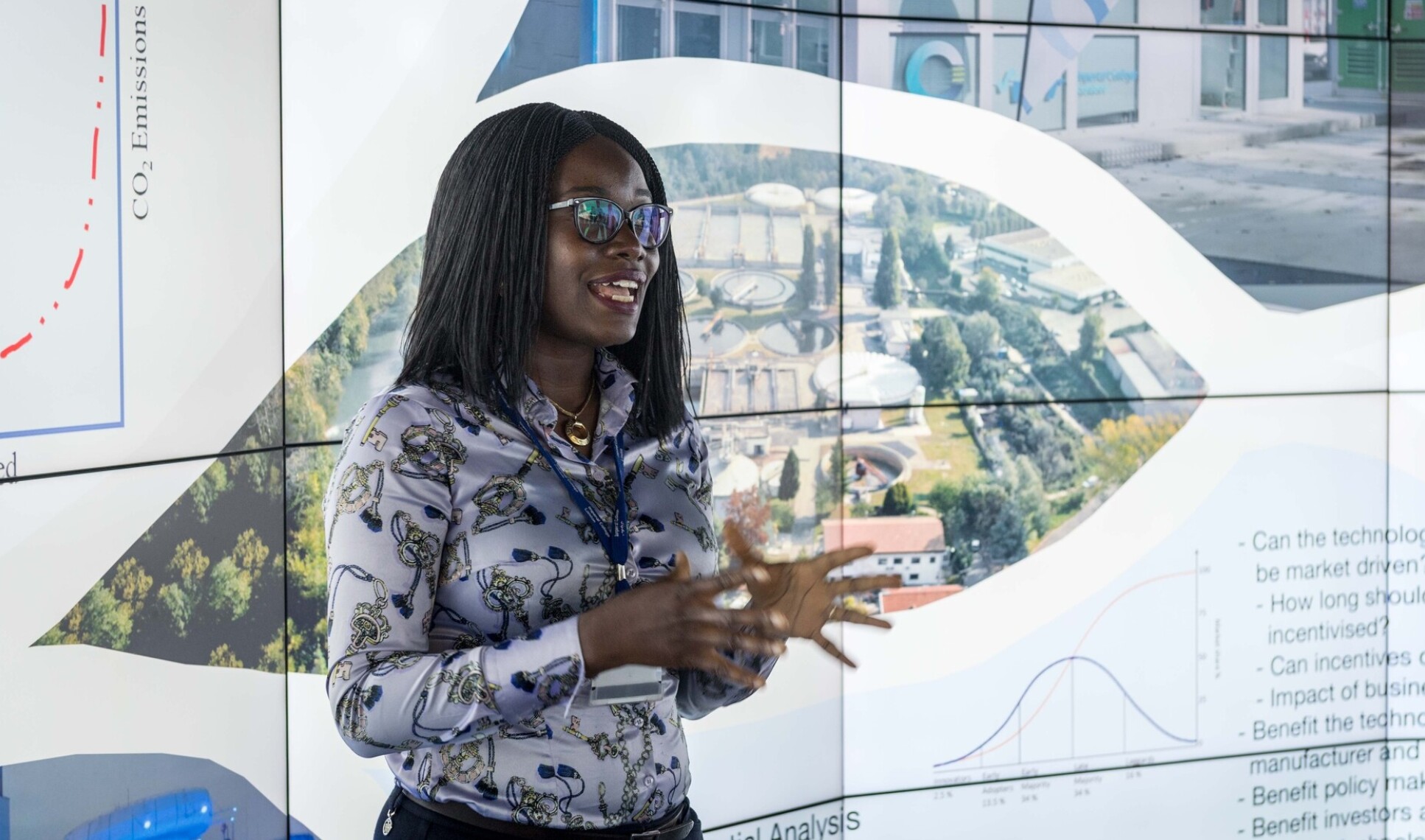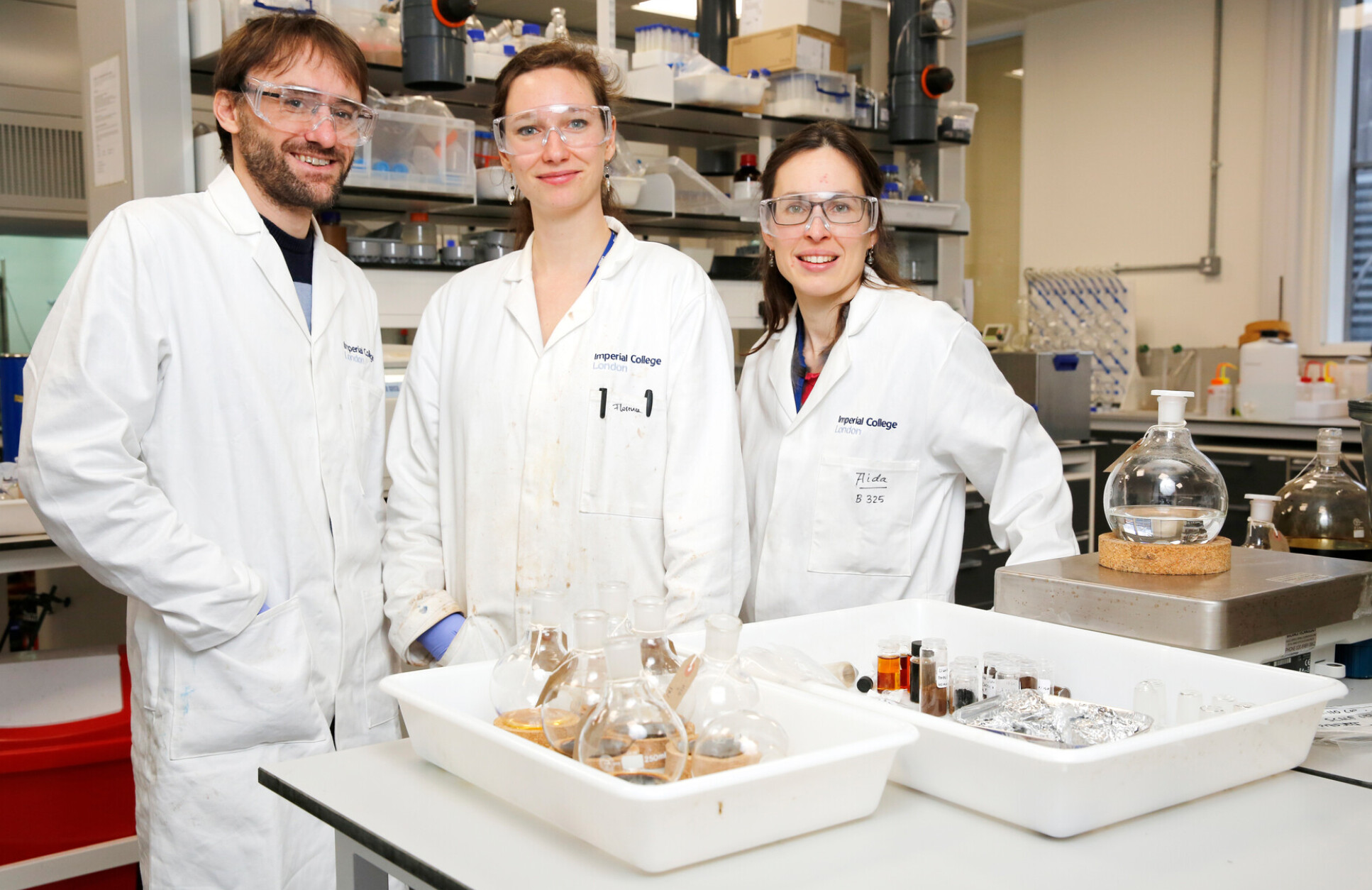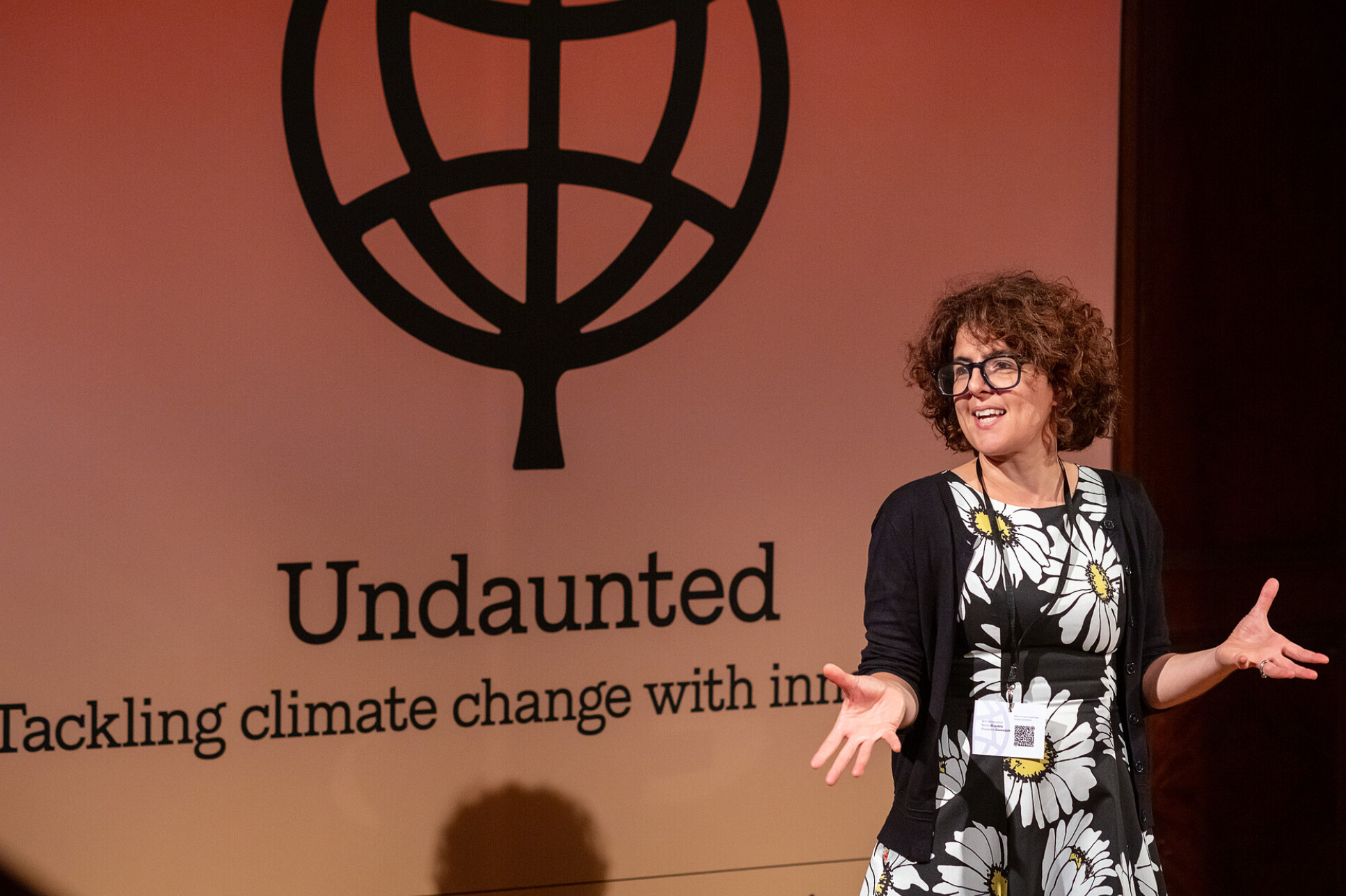Six things we learnt about environmental innovation at All You Can Innovate

Researchers and entrepreneurs shared hard-won lessons on bringing environmental solutions to market at an All You Can Innovate event last month.
Here are six things we learned at the event for Imperial researchers interested in environmental innovation.
-
We need demand-pull as well as supply-push
Dr Gbemi Oluleye in the Grantham Institute – Climate Change and the Environment explained that decarbonisation requires both ‘supply-push’, meaning a stream of climate change solutions available to be rolled out, and ‘demand-pull’, a corresponding appetite for implementing them. The problem is that “there is no pull,” she said. “People are doing things, but not at the scale we need to change the economics of net zero … most are stuck at demo or pilot phase, because there’s no demand-pull to scale them.”
The complexity involved in selecting the right solutions and the right policies to stimulate demand could be addressed by bringing together stakeholders from across society to replace divergent thinking with convergent solutions. This will be the aim of Imperial’s new School of Convergence Science in Sustainability.
-
Target the noisy kids
Dr Oluleye says the best way to change the economics of decarbonisation is in many cases to target the biggest players, due to their ability to influence market prices.
“If you have a large refinery using grey hydrogen, you’re best taxing, supporting or mandating them to utilise clean hydrogen, because then the associated demand-pull will bring down the costs for the rest of society.
"Like when you have a class with kids – you put the noise makers in charge if you don’t want them to make noise. Some governments around the world are starting to see the value in doing that.” -
Deep technology takes a long time
Professor Jason Hallett in the Department of Chemical Engineering has founded a whopping seven spinout companies such as DyeRecycle, whose world-first technique for extracting dye from textiles is helping major fashion companies become better at recycling. Another of his celebrated spinouts, Lixea, can extract cellulose and other useful products from almost any kind of natural waste.
But Professor Hallett warns that the journey can be long, as it has been with Lixea. “We’re roughly 15 years into this journey and just about to hit demo scale. For a chemical technology, that’s pretty good. I tell this story to scare my PhD students – by the time this gets to scale, you’re going to be my age.”
-
Entrepreneurs have to do everything
Dr Francisco Malaret founded Nanomox with Professor Hallett to produce materials such as zinc oxide, widely used in applications as varied as cosmetics and car tyres, using a process that could dramatically improve sustainability, efficiency and performance.
“As a founder, you really need to learn how to do everything. It’s not just about the technology anymore. You need to change your mindset into building a business. It’s been a great learning experience and you need to keep pushing the limit – I love the lab and the pilot plant and I’m terrified of being here,” he told AYCI. “But you need to push boundaries.” -
Patents provide public knowledge that supports innovation
International patent data analysed by IP law firm Mathys & Squire, which often works with Imperial, shows an increase in patents related to the UN Sustainable Development Goals, said partners from the firm Dr James Pitchford and Michael Stott. While patents are designed to protect the interests of the inventor, they can also promote innovation not only by incentivising R&D or attracting investment, but also by the sharing of new inventions publicly.
“That exchange of a monopoly for furthering the public knowledge contributes to the innovation landscape,” said Mr Stott. “Although it might be restrictive, it also makes companies aware of how the technology space is evolving, makes them consider how to compete – and possibly design around it – and look at alternative or improved ways to tackle a problem.” -
There’s a growing ecosystem for climate innovators
Alyssa Gilbert in Imperial’s Grantham Institute – Climate Change and the Environment is a Co-Director of the new School of Convergence Science in Sustainability, a soon-to-launch strategic initiative by the university to create real-world solutions by integrating research and innovation from across academic disciplines and partner organisations. She also leads climate innovation centre Undaunted, a partnership between Imperial and the Royal Institution.
Undaunted aims, she said, to support early-stage ideas with commercial potential, as well as to nurture talented individuals not only from Imperial but the wider community. “I want to work with people who might have solutions that are applicable but don’t know how to take them forward – maybe we can help you,” she said.
Undaunted has also been supporting the continued development of a climate innovation ecosystem, having recently announced new link-ups with the Earthshot Prize and a Research England-funded consortium UK universities known as the Climate Scaling Collaborative.
Access support to innovate
Imperial staff and students that wish to explore how the university can support their environmental innovation ideas can contact Imperial Enterprise for support or direction to the most relevant services.
Photos (top-to-bottom excluding main article image) show Dr Gbemi Oluleye (photo: Fergus Burnett); Lixea founders Professor Jason Hallett, Dr Florence Gschwend and Dr Agi Brandt (photo: Jody Kingzett); Alyssa Gilbert (photo: Dan Weill).
Article text (excluding photos or graphics) © Imperial College London.
Photos and graphics subject to third party copyright used with permission or © Imperial College London.
Reporter
David Silverman
Communications Division